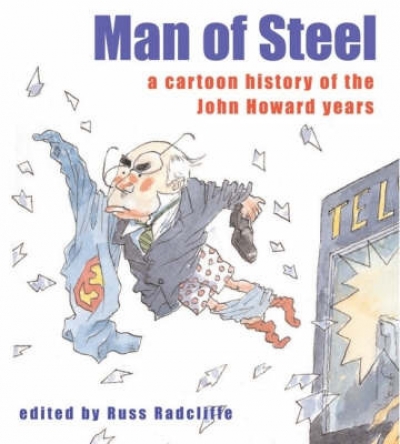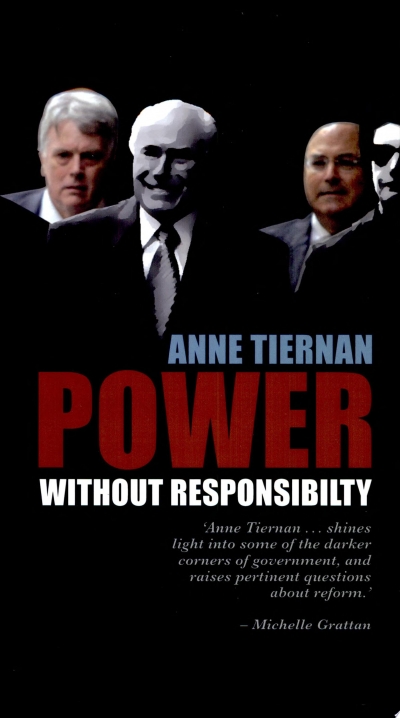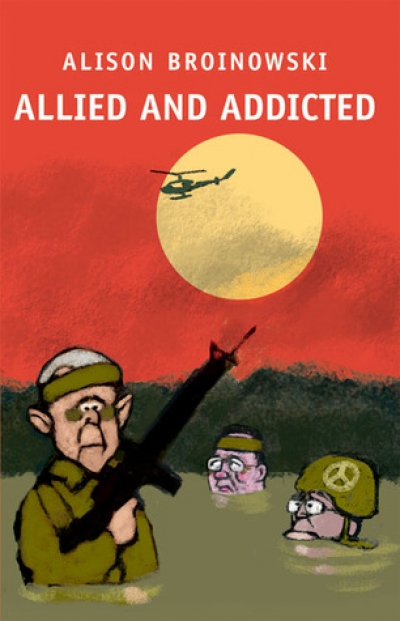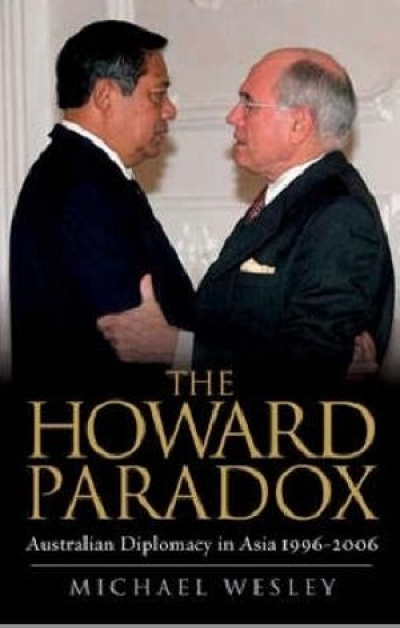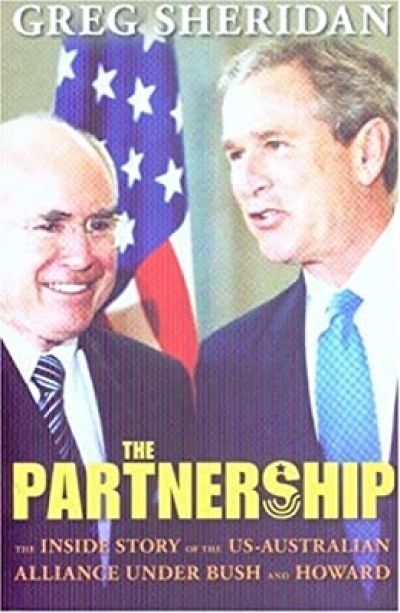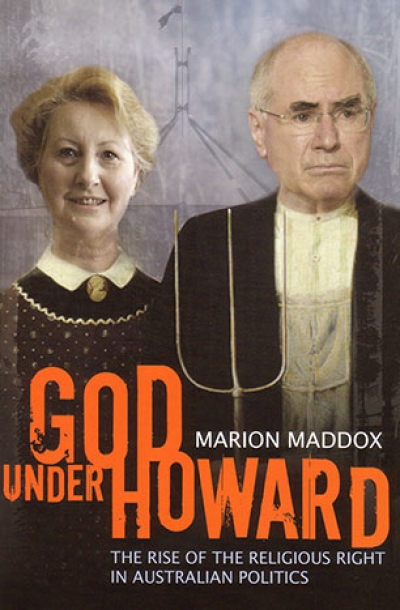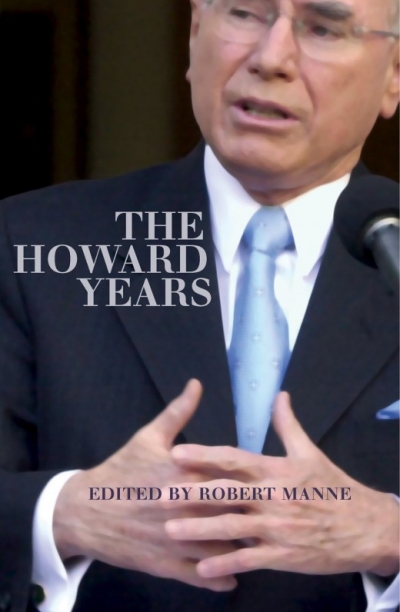John Howard
Man of Steel: A Cartoon history of the Howard years edited by Russ Radcliffe
by Robert Phiddian •
Power Without Responsibility?: Ministerial staffers in Australian governments from Whitlam to Howard by Anne Tiernan
by John Uhr •
The Howard Paradox: Australian diplomacy in Asia 1996–2006 by Michael Wesley
by Allan Gyngell •
Silencing Dissent: How the Australian government is controlling public opinion and stifling debate edited by Clive Hamilton and Sarah Maddison
by Norman Abjorensen •
The War on Democracy: Conservative opinion in the Australian press edited by Niall Lucy and Steve Mickler
by Rodney Tiffen •
The Partnership: The inside story of the US–Australian Alliance under Bush and Howard by Greg Sheridan
by Peter Edwards •
God Under Howard: The rise of the religious right in Australian politics by Marion Maddox
by James Upcher •
The looter held a sign in one hand as he pushed a trolley overflowing with stolen goods in the other. His sign read, ‘Thank you, Mr Bush’. It was not, I suppose, the kind of gratitude George W. Bush had expected. The next day’s looting was not likely to raise a smile: private homes, great museums, and hospitals were ransacked. Vigilantes exercised rough and sometimes cruel justice. There will be worse to come when mobs catch Saddam Hussein’s brutal functionaries. Again, we will be reminded that oppression does not even make people noble, let alone good.
... (read more)
